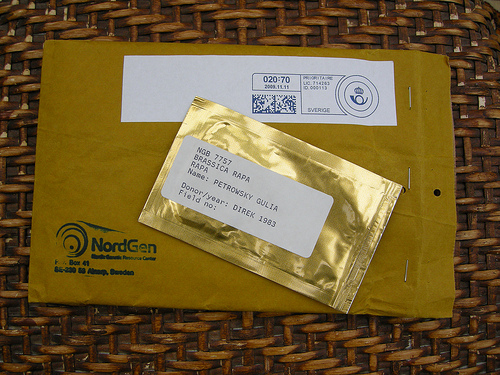
Here we go again: UK genebank threatened
Prospect, a “union for professionals” in the UK reports that the University of Warwick plans to close HRI Wellesbourne, home of a Genetic Resources Unit that is effectively the vegetable genebank for the UK. None of the reports I’ve seen mentions the genebank specifically, and it is only one aspect of HRI’s activities that will be sorely missed if it is discontinued.
The debacle has not yet made it into the mainstream press — unlike the flap over the apple collection at Brogdale, with it’s right royal connections — although I happen to know that HRH Prince Charles has received seeds from HRI, whether he knows it or not. Nor is the genebank mentioned in any of the specialized reports I’ve seen. But this is the place that holds the bulk of the UK’s vegetable seed diversity, old and new, and that was established at least in part in response to the perceived genetic erosion taking place as the UK signed up for EU legislation on seeds. I believe the idea was first mooted by Lawrence Hills, who also founded the Henry Doubleday Research Association. 1 The Ministry of Agriculture bought the idea but not the originator, placing the genebank instead at Wellesbourne, a few miles from where the HDRA eventually came to have its headquarters.
What now? The UK Government doesn’t seem to have said anything publicly, and its funding for HRI Wellesbourne is set to fall from GBP 5 million annually to just GBP 200,000 by 2012, one probably reason why the University is seeking to close the place. I can’t see a White Knight coming to the rescue this time, not for a bunch of vegetables. We can but watch and wait.
Corn genome
We’ve been almost silent on the massive effort this past week announcing the full sequence of the corn (maize) genome, mostly because we don’t actually have that much to contribute. Corn News Central this past week has been James and the Giant Corn; here’s his summary post. One of the things he linked to was a video of Patrick Schnable, one of the lead scientists, explaining what they did, how they did it and why they did it — at least in part — in under 4 minutes. I think it’s instructive.
I’m looking forward to reading about how the full sequence illuminates the domestication of corn, which I’ve read it does.
Small tent conservation
Conservation is about saving wildlife and wild places in specific locales.
Steven Sanderson is President and Chief Executive Officer of the Wildlife Conservation Society, so he has to say that. But of course we all know that conservation is also saving crop varieties in genebanks, don’t we. Don’t we? Hello?
Featured: Silk Road
Onkel Bob seems to know a lot about the Silk Road, do read the whole thing:
The exchange of food was very much a one way exchange, and surprisingly few staples went over this route.